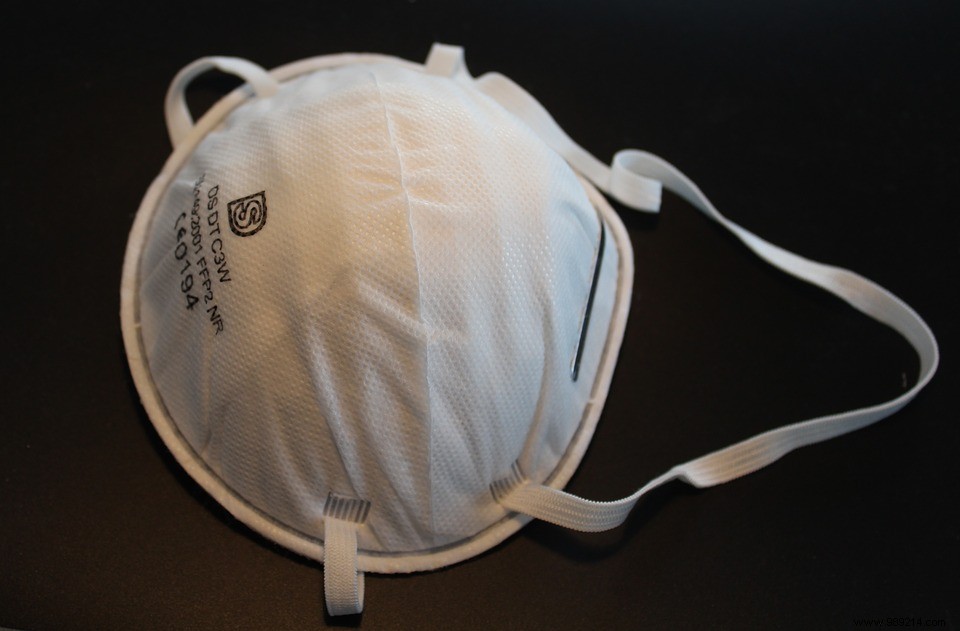FFP2 masks offer one of the best protections against Covid-19. However, these are disposable, just like surgical masks. Researchers based in the United States suggest a few ways to decontaminate them, but none is unanimous.
FFP2 (or N95) masks are in near worldwide shortage. In France, this shortage is accompanied by what would look like a state scandal. It should be remembered that these masks offer one of the best protections by filtering 95% of the particles from the aspirated air . In addition, it is incumbent to differentiate them from surgical masks. Indeed, the latter protect others more by limiting the projection of particles.
In these times of scarcity, one question remains:why can't we reuse these FFP2 masks? According to an article published by Fast Company on March 25, 2020, the answer is simple. Unfortunately, there is no reliable solution regarding their decontamination. The fact is that the Centers for Disease Control and Prevention (CDC) in the United States have looked into some ways. There are several, but problems make it impossible to adopt.

Decontamination means elimination of viruses on masks . However, poor decontamination could have a perverse effect. Indeed, instead of protecting, masks could conversely contribute to the spread of Covid-19! However, the proposed solutions are varied. For example, it is a question of placing the masks in the microwave to generate enough heat before disinfecting them with ultraviolet rays. Another method is to use bleach. Unfortunately, after using either of these methods the masks may be damaged . Even if some come out intact, these practices are risky.
Furthermore, exemplary precision is essential to the decontamination process. However, the CDC has carried out tests but not everyone is a scientist and does not have a suitable environment. The risk is therefore very high for individuals. For example, if we explain to citizens that 30 seconds in the microwave is effective, some may be tempted to leave their mask on for 2 minutes to be certain of killing the virus. In other words, we would encourage insecure practices. Even in a well-equipped hospital, disinfecting enough FFP2 masks would simply be impossible.
In conclusion, no method is 100% reliable and it is totally inadvisable to reuse masks.